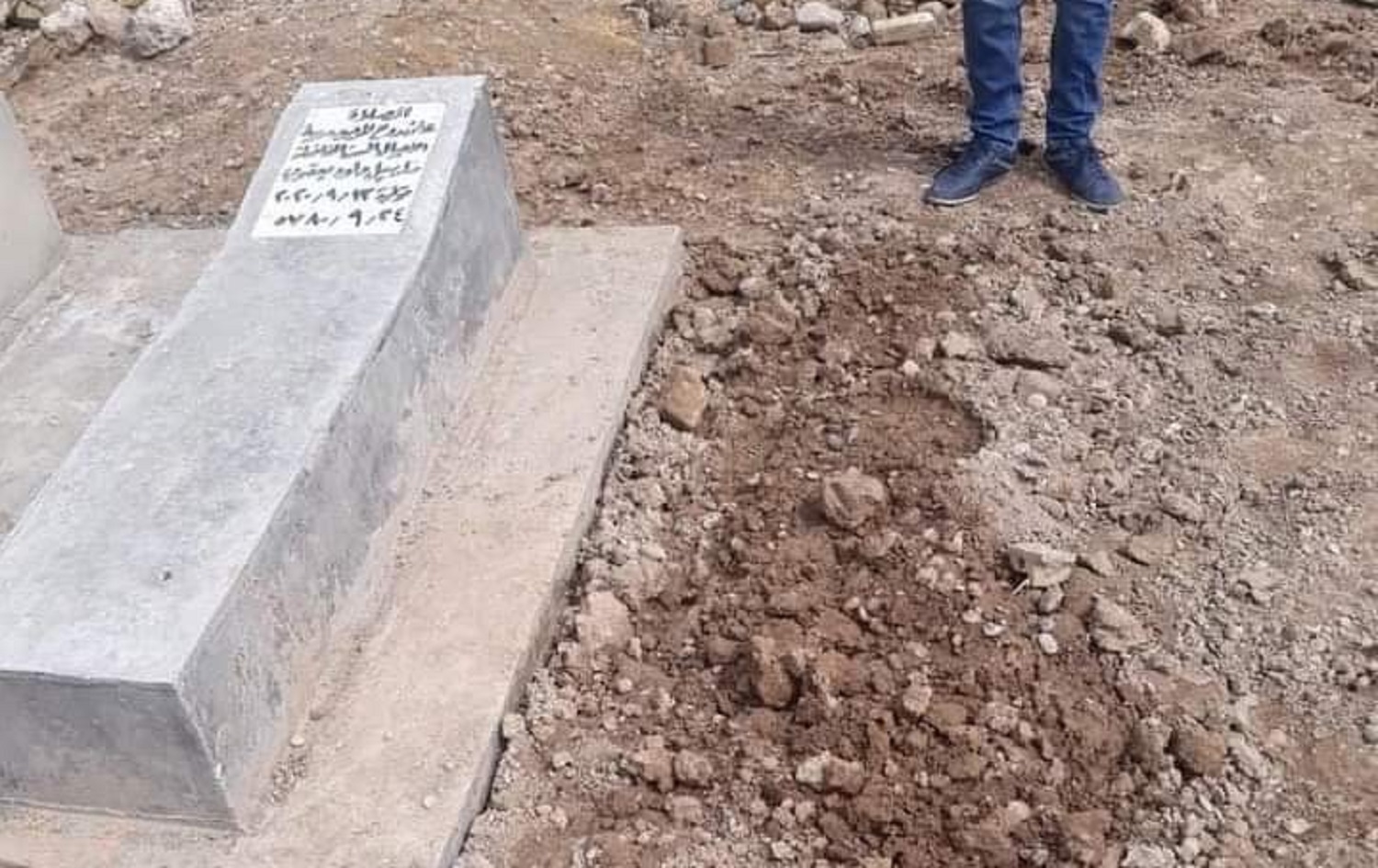
Dhafer Fuad Eliyahu (right) receives a certificate from al-Wasiti hospital in March 2019. Photo: Al-Wasiti Hospital/Facebook
ERBIL, Kurdistan Region — It was 2005 and medical student Munaf Hatem was worried for his supervisor, Dhafer Fuad Eliyahu. Outside their hospital in Baghdad's Karrada neigbourhood, violence was an everyday occurrence and he knew his teacher would especially be at risk. Eliyahu was one of Iraq's last Jews.
"We were told, if anyone asked, to say he was Christian," Hatem said from Poland where he now lives.
Hatem would leave Iraq before the year was out, seeking safety as the country plunged into turmoil and sectarian violence. But Eliyahu, known as the "doctor of the poor," would stay, living out his days in Baghdad until his death on Monday, passing away from a stroke at the age of 60.
On social media, friends and colleagues paint a picture of a physician dedicated to his patients. Eliyahu was a humble and quiet man, a well-respected orthopedist at the city's al-Wasiti hospital. Despite the dangers, he refused to leave his country, staying to serve the capital's destitute. Almost all of Iraq’s Jewish community had fled less than a decade before his birth. Seen smiling in medical scrubs with his colleagues, he was not just a doctor, but was a force binding together a community that has almost faded into extinction.
A core part of Iraq's religious fabric, the Jewish community lived in relative ease and prosperity until the mid-20th century. Baghdad was the beating heart of Jewish life, home to a number of renowned Jewish hospitals as well as schools serving the city's blind. Jews could be found in high-ranking government positions and were sheltered from the atrocities of the Holocaust. In the 2017 documentary 'Remember Baghdad’, Iraqi-born Jews reminisced about growing up beside the Tigris, lives that were punctured with anti-Semitism as the years went on.
In 1941, a wave of anti-Jewish violence followed the collapse of the monarchy, stirred up by pro-Nazi sentiments from the Grand Mutfi of Jerusalem. The Farhud, Arabic for ‘to dispose of something with violence,’ saw more than a hundred killed by angry mobs hunting in the streets of the capital, pulling Jews off buses to be murdered. Seven years later, the establishment of the state of Israel stirred up more hatred against Jews in Iraq. By the mid-1950s around 130,000 Jews had left the country, forced to relinquish their citizenship for a flight, never to return. Synagogues and kosher eateries closed their doors for good, and the population shrunk to 8,000 people who kept a low profile in Baghdad.
Now, only four are left.
"We knew for a long time that he was a Jew. And he was our father. Our brother. There are no differences between human beings," said Dhulfiqar al-Janoubi, a nursing assistant at al-Wasiti, who described his friend as an honest, giving man.
"He was the example of kindness."

It has been decades since Baghdad's Jews have been able to form a minyan, the quorum of ten adult males needed for Jewish worship. Synagogues have sat silent for generations, but behind closed doors, Eliyahu and compatriots celebrated the High Holidays of the Jewish calendar, shared with a select few from outside the community.
Andrew White, known as the ‘Vicar of Baghdad,’ lived in Baghdad for close to two decades, running the city's only Anglican Church. In a clinic he ran in the capital, he met Eliyahu's sister who introduced the priest to her brother, a "great surgeon, and a great man." Over the years, he shared in the tight-knit Friday night Shabbat dinners, the rituals of Passover and Sukkot in the privacy and safety of people's homes.
"It was very, very traditional," White said of the holidays spent with Eliyahu. "They kept everything alive."
"All we did was love each other. We said, as Jews and Christians, we are the same. We are not different," he said.
Edwin Shuker, a Baghdadi Jew and friend of Eliyahu returned to visit his childhood home near Sadr city in the 2017 documentary. He has paid tribute to the doctor, who now lies at rest in the city's Jewish cemetery next to Marcelle Yacoub, a woman who is credited with also leading the dwindling community before her death last year.
"His modesty was legendary," Shuker wrote of Eliyahu. His death “is an immense blow to administrating the affairs of the community's remaining assets, including cemeteries, shrines, synagogues, and legacies," he added, saying this will rapidly lead to the "total extinction" of Iraq’s ancient Jewish presence.
Doctors across Baghdad are mourning his loss. Hospitals and health authorities have paid tribute this week and Israel's official Arabic-language page, dedicated to the Iraqi dialect, said Eliyahu served Baghdad's sick during "Iraq's darkest days."
Eliyahu, who leaves behind one sister, rarely discussed politics or religion, Hatem said. In the hallways of the hospital, there was no talk or Islam, or Judaism, or the violence outside. Eliyahu focused on his one thing: his patients.
"He was the most loving of all."








Comments
Rudaw moderates all comments submitted on our website. We welcome comments which are relevant to the article and encourage further discussion about the issues that matter to you. We also welcome constructive criticism about Rudaw.
To be approved for publication, however, your comments must meet our community guidelines.
We will not tolerate the following: profanity, threats, personal attacks, vulgarity, abuse (such as sexism, racism, homophobia or xenophobia), or commercial or personal promotion.
Comments that do not meet our guidelines will be rejected. Comments are not edited – they are either approved or rejected.
Post a comment